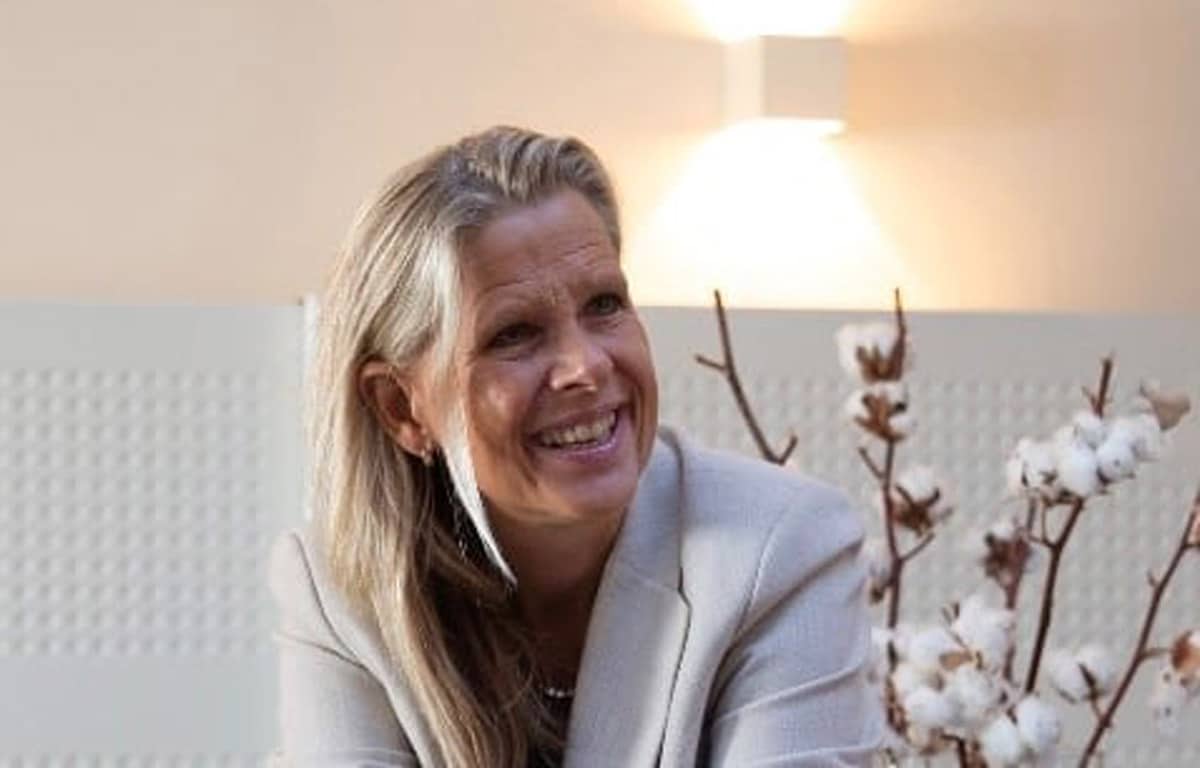Buying a Home in the Netherlands: Insights from Notary Anne-Marie Snel
Monique Burgemeester recently sat down with Anne-Marie Snel, a notary and owner of Prinsenhof Notarissen in Prinsenbeek, a charming village near Breda. Anne-Marie began her career in 1994 and quickly discovered her passion for notarial work. Over the years, she has built a strong reputation as a trusted notary, offering personal attention to her clients, including a growing number of expats. In this interview, Anne-Marie shares her insights into the home-buying process in the Netherlands and explains the critical role a notary plays in property transactions.
What is the Expat Home-Buying Journey in the Netherlands?
Once you’ve found a property and partnered with a reliable real estate agent, the next step is to involve a notary to finalize the legal aspects. As an impartial party, the notary reviews contracts to ensure that everything is handled without conflicts of interest.
You will visit the notary twice:
- First visit: To sign the purchase and sales agreement.
- Second visit: To sign the transfer deed. You will also sign the mortgage deed during this visit if you require a mortgage.
“In Amsterdam, the notary usually prepares the sales contract,” Anne-Marie explains, “while outside Amsterdam, this is typically handled by the seller. Additionally, Dutch law requires buyers to declare the source of their funds to prevent money laundering, a process overseen by the notary.”
What Should Expats Be Aware Of?
Anne-Marie emphasizes the importance of understanding certain details.
If you don’t speak Dutch, an official translator must be present when signing the deeds. This cost should be included in your budget.
“Expats should also consider which laws apply to their assets as residents of the Netherlands, such as tax laws or inheritance rules,” Anne-Marie notes. “For instance, you’ll need to decide who will inherit your possessions, including your home, after your death. The notary ensures compliance with both Dutch and international laws.”
What to Bring to the Notary’s Office
For your first visit, you will need:
- A valid ID.
- A completed “Herkomst Eigen Gelden” form (Source of Funds form), is required under the Money Laundering and Terrorist Financing (Prevention) Act (Wwft).
For your second visit, you will need:
- A valid ID.
- Proof of payment for the purchase price, if applicable.
- Any additional documents requested by the notary, such as a power of attorney if someone else is signing on your behalf.
“It’s always a good idea to check with the notary’s office beforehand to ensure you have everything in order,” Anne-Marie advises.
When Do You Get the Keys and Become the Official Owner?
“You officially become the owner of the house after signing the deed of transfer at the notary’s office,” Anne-Marie explains. Once the deed is signed and the notary confirms that the purchase price has been paid in full, the keys are handed over. This typically happens right after the signing, either at the notary’s office or directly with the seller.
How Does the Land Register Work?
The Land Register, or Kadaster, is a cornerstone of the Dutch property system. It records all properties, including ownership, boundaries, and legal rights such as mortgages.
“When you buy a property, the notary registers your ownership in the Land Register,” Anne-Marie notes. “This makes your ownership official and protects your rights. It’s a reliable system that helps resolve disputes and provides peace of mind.”
Anne-Marie’s Top Tip for Expats
Expats should not only focus on the home-buying process but also consider estate planning and tax implications, particularly regarding inheritance laws. These can vary significantly depending on your country of origin.
Her most important advice: “Always make sure you fully understand what you’re signing.”
About Anne-Marie
With decades of experience in both small and large notary offices, Anne-Marie has developed a unique perspective on her profession. As the owner of her practice, she provides personalized attention to every client. Fluent in English and knowledgeable about international laws, she is particularly skilled in helping expats navigate the Dutch real estate market.
If you’d like to learn more or get in touch with Anne-Marie, you can find her on LinkedIn: Anne-Marie Snel, or via Prinsenhof Notarissen.
How Energy Labels Can Increase Your Buying Power
New Mortgage Rules: Boost Your Borrowing Power with Energy Labels
Starting in 2024, the mortgage landscape in the Netherlands is shifting, offering homebuyers more flexibility based on their property’s energy efficiency. Traditionally, you could borrow up to 100% of your property’s value, depending on your income, home value, and mortgage interest rates. However, new government guidelines allow you to borrow even more if your home is energy-efficient. These changes, recommended by the National Institute for Family Finance Information (Nibud), are set to impact anyone looking to buy or refinance a home significantly.
How Energy Labels Impact Your Mortgage
Starting in 2024, your maximum mortgage amount will factor in your home's energy label, together with your income, property value, and interest rate. This update ensures that your mortgage matches your financial capacity by considering potential savings on energy bills from a more efficient home.
For example, with an energy label C or D, you might qualify for an additional €5,000 on your mortgage. However, if your home boasts an A++++ rating and has an energy performance guarantee for at least ten years, your borrowing capacity could increase by up to €50,000. This change incentivizes homeowners to invest in energy-saving upgrades, as it directly influences their mortgage potential.
The Importance of Energy Labels
Energy labels rank homes based on their energy efficiency, from A (most efficient) to G (least efficient). Homes with better energy labels are more attractive to buyers due to lower heating and cooling costs. With the new mortgage rules, a better energy label means you can get a larger mortgage.
In Amsterdam, energy label A is already widespread, with over 127,000 homes achieving this rating. However, many historic homes, such as those in the Canal Belt, often have lower ratings like label G due to their age and architectural limitations. As a result, buyer preferences may shift, making energy efficiency a key factor in determining a home’s value and appeal.
Mortgage Interest Rates and Borrowing Percentages
This year, many lenders have lowered their interest rates, making it easier for homebuyers. About one-third of these rate cuts apply to short-term and long-term fixed rates, usually dropping by 0.05% to 0.10%. When you combine these lower rates with the chance to borrow more if your home has a better energy label, now could be a great time to buy or refinance a home.
Buying a Home in Amsterdam? Consider Looking Outside the Ring
If you’re looking to buy a home in Amsterdam and need to maximize your mortgage capacity, we advise you to explore areas outside the A10 Ring Road. Homes within the ring are highly desirable but are often older and less energy-efficient, making it harder to achieve a high-energy label. By expanding your search to areas outside the ring, you may find newer or more energy-efficient properties, allowing you to qualify for a larger mortgage under the new rules. This strategy could be crucial in securing the home you want with the financial flexibility you need.
What This Means for You
If you’re planning to buy a home or refinance your mortgage, it’s essential to consider your property’s energy label. While energy-efficient upgrades might require an initial investment, they can significantly increase your borrowing capacity and reduce your long-term expenses.
Conclusion
The new mortgage rules in the Netherlands strongly emphasise energy efficiency, making it a key factor in home buying. Starting in 2024, homes with better energy labels will enable buyers to borrow more, increasing the appeal of energy-efficient properties. If you’re targeting the Amsterdam market, expanding your search beyond the A10 Ring Road could help you find a home that aligns with these new guidelines, maximizing your borrowing power and opening up more opportunities in your home search.
By understanding and taking advantage of these changes, you will make smart decisions that improve your quality of life and financial stability. If you need help finding a mortgage advisor, real estate agent, or energy label expert, email us at monique@howtobuya.house. We’ll connect you with a trusted professional to assist you.


